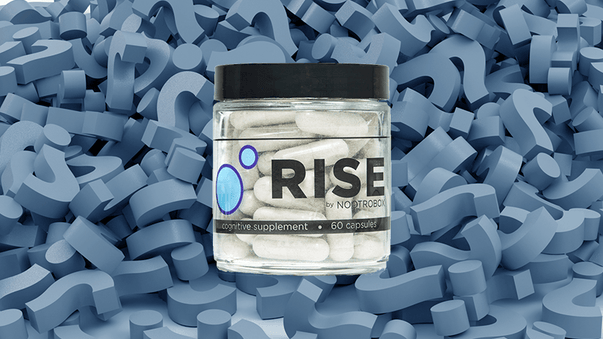Common Sense Advice from Imperial College

Before starting, please allow me a comment on our format (short paragraphs with needed links). Too often the popular sci/tech and health press doesn’t link to the original sources (typically, press releases, product announcements and scientific papers). Instead, they re-write the story, and the result is usually poorer than the original. Here, we do the opposite: explain why something is important and why you should care, provide links for intelligent readers (that is, for all readers), and proceed to the next item.
This week the lion's share of health related news comes from Imperial College in London, UK. This is not really surprising: Imperial College is one of the most reputable colleges in the world, with a long tradition of excellence in most scientific fields, including medicine, and pragmatic research methods that include, one might say, typical British common sense.
In fact, the results of the first three studies linked below sound like good old plain common sense: Eat plenty of fresh fruits and vegetables, don’t eat too much, smoke less, exercise more, and consider yourself lucky if you live in a place with good public health care and maintenance standards. What could be simpler than that? But common sense is often difficult to see, and even more difficult to live by. This comes from a writer who ignores, at his risk and peril, most health related common sense. The best advice in this issue of Pulse is, don’t follow me. Be smarter, and follow the Imperial College scientists instead.
This week’s health and lifestyle news, with a dazzle of futurism at the end:
You should eat more fruits and vegetables. Well, your grandmother knew and told you that, didn’t she. But it’s always good to see popular wisdom confirmed by quantitative scientific studies. Imperial College researchers have found that increased fruit and vegetable intake shows major benefit in reducing the chance of heart attack, stroke, cancer and early death. The open access study, published in the International Journal of Epidemiology, goes beyond generic grandmotherly recommendations and analyzes which types of fruit and vegetables provided the greatest protection against disease.
Weight loss drug shows promise to prevent diabetes. Another Imperial College research team found that a weight loss drug known as liraglutide, which seems to work by mimicking the action of a naturally-produced hormone that reduces appetite, can significantly reduce the risk of type 2 diabetes. The drug was tested globally on more than 2,000 overweight people with increased blood sugar levels, a condition that often leads to type 2 diabetes when untreated. The study, published in Lancet, was funded by Novo Nordisk, the manufacturer of liraglutide (trade name Victoza), which is already used to manage weight and diabetes.
Life expectancy rising, pushing 90. Other Imperial College scientists analyzed trends in mortality and longevity data to predict how life expectancy will change in 35 industrialized countries by 2030. The results of the study, published in Lancet, show that a baby girl born in South Korea in 2030 will expect to live 90.8 years. The scientists identify good nutrition in childhood, low blood pressure, low levels of smoking, good access to healthcare, and uptake of new medical knowledge and technologies, as important factors. In Europe, French women and Swiss men are predicted to have the highest life expectancies at birth in 2030. Readers in the US should worry: their country is expected to have the lowest life expectancy at birth in 2030 among high-income countries. Now, what to do about that?
Hacking health the Silicon Valley way. Time is running a story on biohacking, described as “one of the biggest things happening in the Bay Area.” Rather than waiting years for conventional treatments to be approved by Big Brother, many Silicon Valley residents including famous tech titans are testing “ways to modify human biology that fall somewhere on the spectrum between science and entrepreneurialism.” The story covers vampiresque young blood transfusions, personal genome sequencing, high-tech fasting diets, anti-aging superpills, and nootropics, or smart drugs, defined by our sponsor as “substances that support brain function and promote mental performance.”
Type faster with direct brain control. Last week we covered promising advances in Brain-Computer Interfaces (BCIs) for severely disabled, “locked-in” patients. Now, a team led by Stanford University scientists has demonstrated that BCI can enable patients to point and type via direct brain control at the highest speeds and accuracy levels reported to date. The BCI used in the open access study published in eLife, known as BrainGate Neural Interface System, is mildly invasive: It penetrates the surface of the brain to tap into the electrical activity of individual nerve cells in the motor cortex. The researchers are persuaded that powerful, intuitive, flexible neural interfaces will one day restore communication, mobility and independence for disabled patients.
Here it’s worth noting that, as usual, the scientists are careful to mention only the therapeutic aspects of their work, avoiding its enhancement aspects. But it seems obvious that the same BCI research could give us telepathy one day, our brain nodes in tomorrow’s neural internet.
More Articles
Don't miss a beat! In our Pulse Newsletter, Thrivous curates the most important news on health science and human enhancement, so you can stay informed without wasting time on hype and trivia. It's part of the free Thrivous newsletter. Subscribe now to receive email about human enhancement, nootropics, and geroprotectors, as well as company news and deals.
Read more articles at Thrivous, the human enhancement company. You can browse recent articles in Thrivous Views. See other Pulse Newsletter articles. Or check out an article below.
-
Improve Your Focus with Panax Ginseng
Panax Ginseng is a slow-growing perennial plant native to North America and eastern Asia. It is the most well-studied kind ...
-
HVMN Nootrobox Rise vs Thrivous Clarity
HVMN Nootrobox Rise is a nootropic dietary supplement that competes with Thrivous Clarity. Nootropics improve focus, memory, mood, energy, and ...


